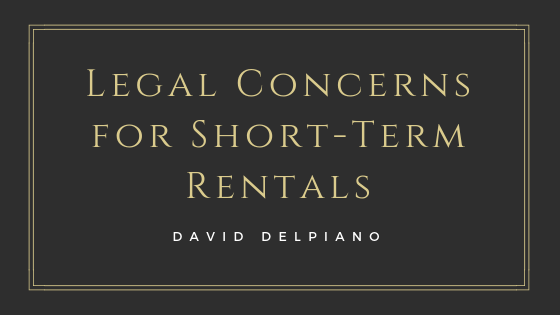Services like Airbnb that allow you to rent your property out for short periods of time could be a game changer in the real estate industry, but don’t expect them to replace traditional models anytime soon. This model is still young, and there is a raft of associated legal complications. That doesn’t mean that you shouldn’t rent out your property, but there are a few things you should consider before you do.
Definitions of Short Term Rentals
There’s little in the way of federal regulations in place, so the circumstances for what you can pass off as a short-term rental will likely vary by state. Some states and municipalities like Charleston only allow you to rent a property if it’s over a certain age, while others restrict short-term rentals for full-sized homes or non-traditional properties like RVs or trailer homes. Then there are the designated lengths of time when a property can be rented. The maximum length of stay could vary from anywhere between a week to four months.
Zoning can also sometimes be an issue. Santa Barbara and New Orleans, for instance, either ban or severely limit the amount of available short-term rentals in certain neighborhoods, and they even work hand in hand with Airbnb to enforce these policies. Be careful to research your area’s regulations before listing a rental.
Restrictions Built Into Your Lease
While municipal and state governments are racing to set regulations for short-term rentals, you also need to consider the legal complications involved with your landlord. Many contracts come with provisions that prevent or limit short-term rentals or sublets. These terms can usually be found in your lease, but if you’re uncertain about the wording, you can always check with your landlord to get a better understanding of the terms and potentially arrange for special permissions.
What’s Required
While local laws and the terms of your lease can be difficult to navigate, the licenses and permits tend to be more straightforward. Since short-term rentals generally fall under the purview of a business, a general business license typically must be obtained. Many areas also require the acquisition of a license or permit more specific to short-term rentals, as these allow a degree of assurance that your property is up to code.
While you could potentially fly under the radar trying to rent out your property in the short term, chances are that you’ll get caught sooner rather than later. Short term rentals may have once been the wild west of the real estate world, but regulators are moving quickly to catch up and making sure all of your ducks are lined up can save you a lot of trouble in the future.
